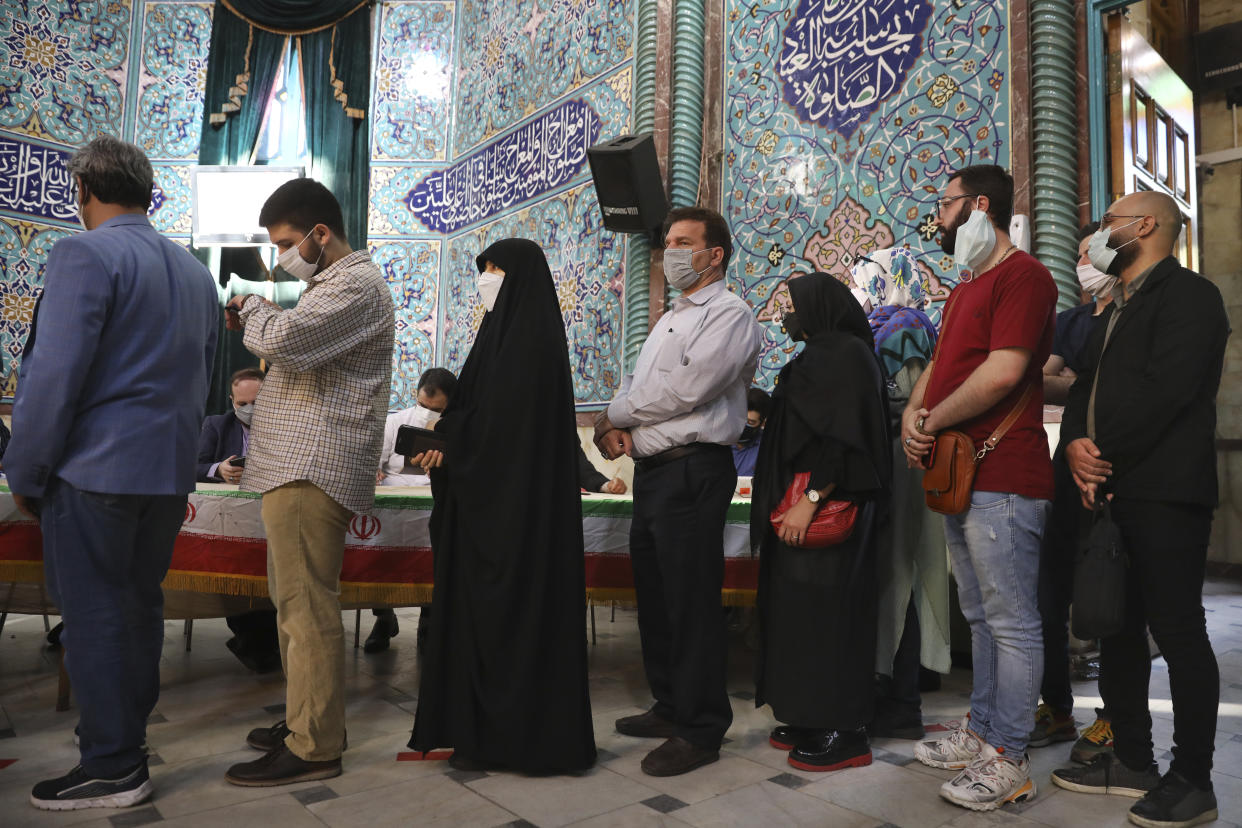Hard-liner set to become Iran’s new president as rivals concede
(AP) - The sole moderate candidate in Iran’s presidential election has conceded he lost to the country’s hard-line judiciary chief.
The move signalled the protege of Supreme Leader Ali Khamenei has won the vote he dominated after the disqualification of his strongest competition.
Former Central Bank chief Abdolnasser Hemmati, who is considered a moderate, and former Revolutionary Guard commander Mohsen Rezaei offered their congratulations to Ebrahim Raisi.
In initial results, Mr Raisi won 17.8 million votes to Mr Rezaei’s 3.3 million and Mr Hemmati’s 2.4 million, said Jamal Orf, the head of Iran’s Interior Ministry election headquarters. The race’s fourth candidate, Amirhossein Ghazizadeh Hashemi, had around 1 million votes.
Opinion polling by state-linked organisations, along with analysts, indicated that Mr Raisi — who already is under US sanctions — was the front-runner in a field of only four candidates.
That led to widespread apathy among eligible voters in the Islamic Republic, which has previously held up turnout as a sign of support for the theocracy since its 1979 Islamic Revolution.

Mr Hemmati offered his congratulations on Instagram to Raisi early on Saturday.
“I hope your administration provides causes for pride for the Islamic Republic of Iran, improves the economy and life with comfort and welfare for the great nation of Iran,” he wrote.
On Twitter, Mr Rezaei praised Mr Khamenei and the Iranian people for taking part in the vote.
“God willing, the decisive election of my esteemed brother, Ayatollah Dr Seyyed Ebrahim Raisi, promises the establishment of a strong and popular government to solve the country’s problems,” Mr Rezaei wrote.
As night fell on Friday, turnout appeared far lower than in Iran’s last presidential election in 2017.

At one polling place inside a mosque in central Tehran, a Shiite cleric played football with a young boy as most of its workers napped in a courtyard.
At another, officials watched videos on their mobile phones as state television blared beside them, offering only tight shots of locations around the country — as opposed to the long queues of past elections.
Ballots closed at 2am on Saturday after the government extended voting to accommodate what it called “crowding” at several polling places nationwide.
Paper ballots, stuffed into large plastic boxes, were to be counted by hand through the night, and authorities said they expected to have initial results and turnout figures on Saturday morning at the earliest.
“My vote will not change anything in this election, the number of people who are voting for Raisi is huge and Hemmati does not have the necessary skills for this,” said Hediyeh, a 25-year-old woman who gave only her first name while hurrying to a taxi in Haft-e Tir Square after avoiding the polls. “I have no candidate here.”


